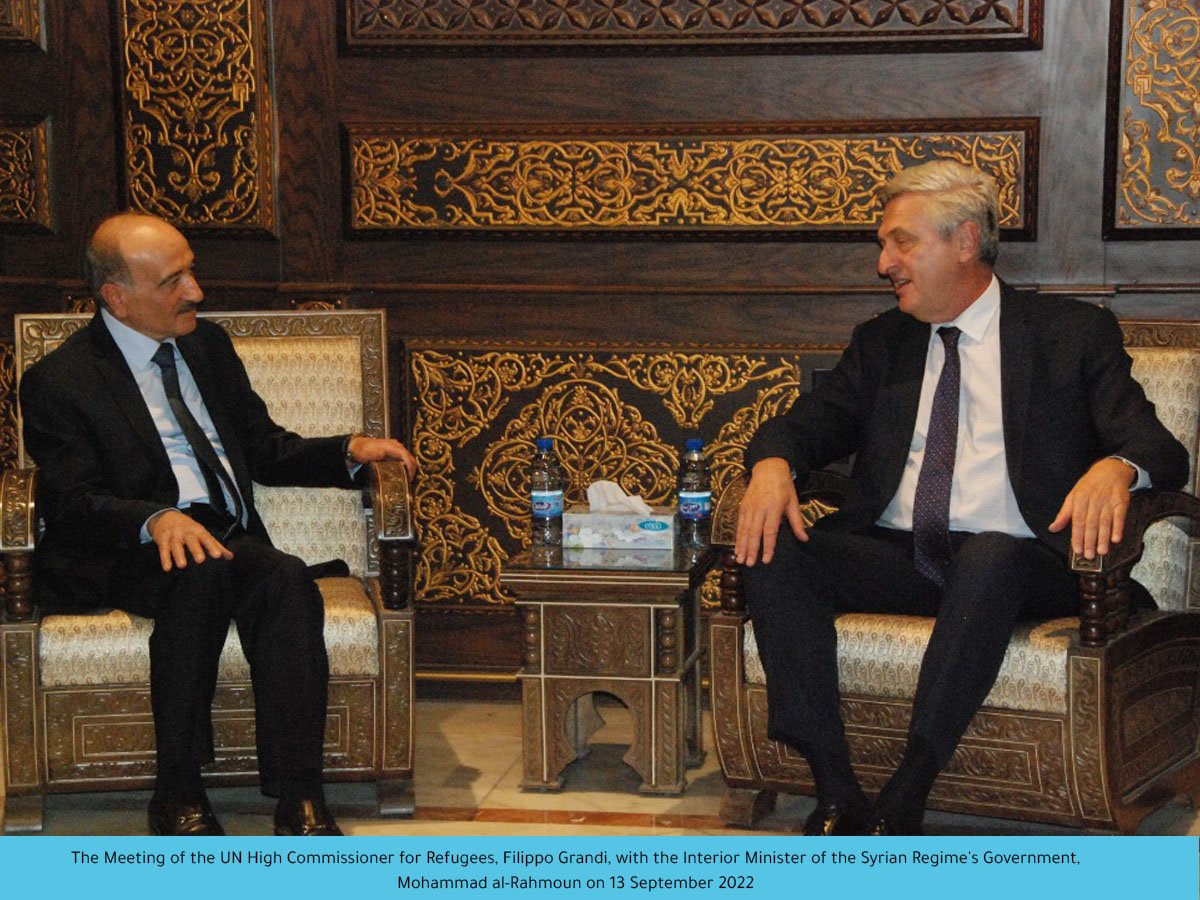
Languages
Available In
Paris – Syrian Network for Human Rights:
On September 13, the UN High Commissioner for Refugees (UNHCR) visited several locations in areas of Syria under the Syrian regime’s control, and met with the Syrian Foreign Minister. While this was not the UNHCR’s first visit to Syria or his first meeting with the Syrian regime, what was striking about this visit was the UNHCR, Filippo Grandi’s, acceptance of an invitation to meet with the Syrian regime’s Interior Minister, Mohammad al-Rahmoun, in the conference hall of the Presidency of the Council of Ministers in the Kafr Sousa neighborhood of Damascus on September 13. The UNHCR and his staff do not appear to be sufficiently well-informed of the background of Mohammad al-Rahmoun and the egregious violations in which he is involved, some of which constitute crimes against humanity.
Following is some of the information on Mohammad al-Rahmon’s background from the SNHR’s database:
Al-Rahmoun, born in 1957, originally from the city of Khan Shaykhun in the countryside of Idlib Governorate, is now a Major-General and is one of the most prominent security figures engaged in the planning and management of the Syrian regime’s internal security affairs. He was listed on the sanctions list issued by the U.S. Department of the Treasury in early 2017. He was also added to the UK’s sanctions lists in 2019, due to his direct association with Syria’s chemical weapons program, and for being part of the chain of command responsible for issuing a series of orders related to chemical weapons attacks carried out by regime forces on several areas in Rif-Dimashq Governorate, in particular the Ghouta massacre in 2013 in which 1,127 people, whose names and details are registered on the SNHR’s database, were killed. In early March 2019, Major General Mohammad Khaled al-Rahmoun was placed on the European sanctions list, which includes seven ministers in the Syrian regime’s government.


